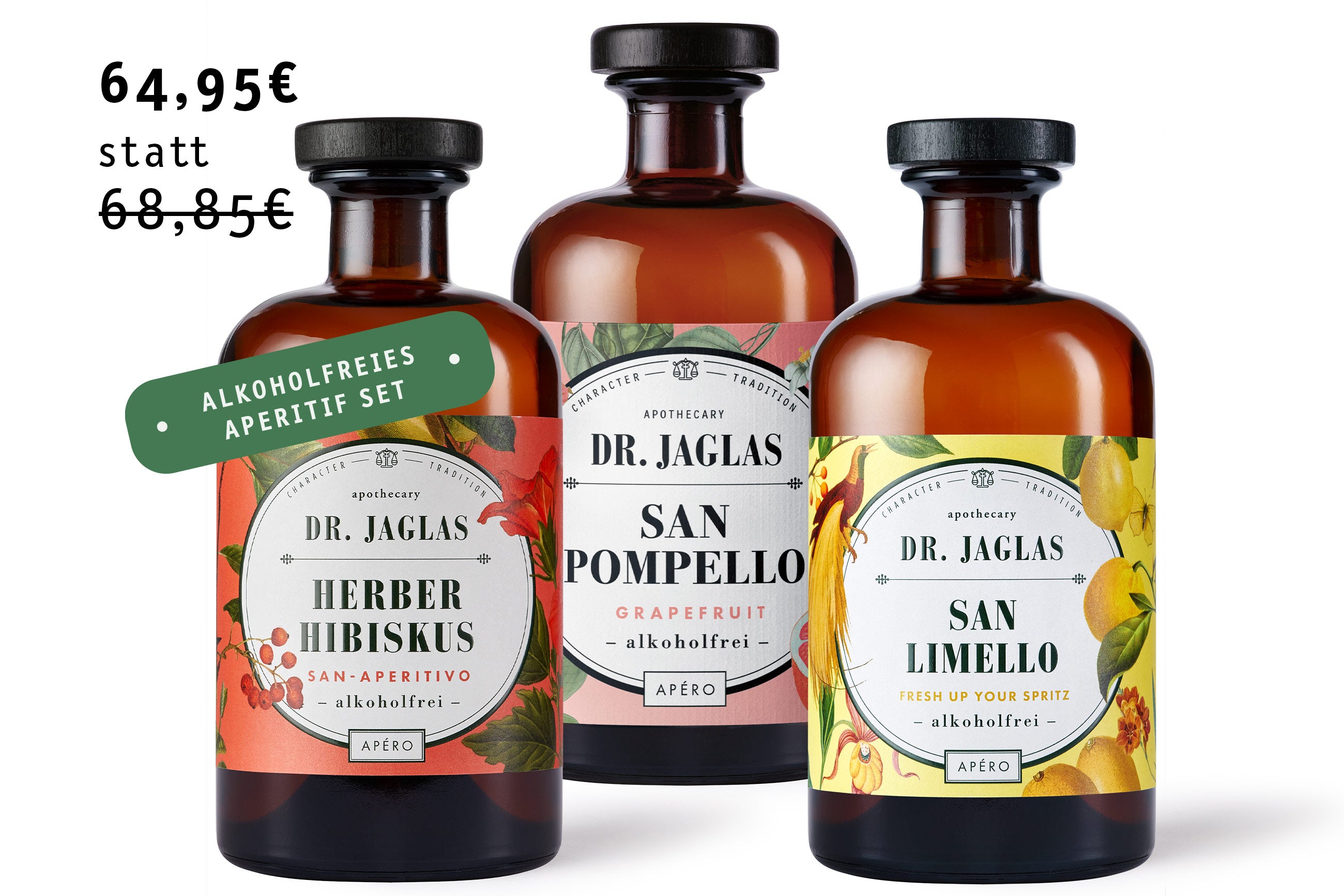Almost everyone has one or another spirit at home. Already opened or still unopened bottles that are perhaps only taken out of the cupboard or home bar on special occasions. But do regulations actually have to be followed when storing alcohol and how long does alcohol actually last? The following article provides the most important information to ensure that your alcoholic drinks retain their high quality for a long time.
The most important thing about the shelf life of alcohol
When we think of alcohol, we usually think of spirits . But not every drink with alcohol is also a spirit. Only drinks with a minimum alcohol content of 15 percent and which are obtained through distillation can be called spirits. There are exceptions, however. According to the law, the minimum alcohol content of eggnog is "only" 14 percent. Nevertheless, it can officially be called a spirit .
For spirits such as schnapps, liqueurs, brandies and elixirs, the general rule of thumb is that the shelf life of alcohol increases with the alcohol content. The higher it is, the longer you can keep the bottle. If it is 30 percent or more, for example, the spirit will last for several decades if stored correctly. If it is at least 37.5 percent, the shelf life of alcohol is actually virtually unlimited. This is because alcohol has very good preservative properties. It doesn't give harmful germs and bacteria a chance.
Sugar also has a preservative effect. However, it is not as strong as that of alcohol. Nevertheless, a liqueur with a very high sugar content, for example, can often be stored for several months even after opening.
Can liqueur go bad?
In principle, you should be a little careful with liqueurs - especially if they are homemade and contain ingredients that can spoil. Look closely at the composition, the recipe and the alcohol content. This applies in particular to cream and egg liqueurs as well as liqueurs with milk, which often have a relatively low alcohol content. These should only be kept for a few weeks after first opening and need to be kept in a cool, dark place: ideally in the refrigerator. If the liqueur has no perishable ingredients and an alcohol content of at least 30 percent, you generally don't have to worry. You can still enjoy the fine tipple years or even decades later, because alcohol has a longer shelf life .
Can alcohol expire, and if so, how do I know?
Fortunately, the shelf life of alcohol is relatively easy to check. If, for example, a spirit has become flaky, the individual components have separated or settled, or you notice bubbles forming in the bottle, then it is no longer advisable to consume it. The same applies if a rim has formed on the bottle or a kind of plug has formed on the neck of the bottle. If you don't notice anything unusual on the outside, test the smell and taste. If in doubt: throw it away!
Proper storage of alcohol
Proper storage is very important for alcohol to last as long as possible. You should make sure that spirits - unlike wine - are not stored lying down, but always upright. This applies to both cork and screw caps. The temperature also plays a major role; it must be cool (i.e. below 20 degrees Celsius) and absolutely constant. Temperature fluctuations can lead to a change in density.
If the environment suddenly gets a little warmer, the liquids expand. If the temperature drops, they contract. This creates a constant overpressure and underpressure in the bottle, which causes gases to be drawn out of the bottle and oxygen to be drawn into it. Ultimately, no closure is completely and 100 percent tight. The consequences: oxidation and evaporation.
When storing alcohol , make sure it is in a dark place without direct sunlight. This would also lead to temperature fluctuations, but at the same time can also have a negative effect on the flavor of the spirit . In addition, the UV rays bleach the label, which would make the bottle less valuable. A location that is too humid should also be avoided.
How do I store opened spirits?
Even opened bottles need to be stored in a cool, dark and dry place at all times. However, it is advisable to consume even high-proof spirits with an alcohol content of over 30 percent relatively quickly after opening so that you can enjoy the full taste and fine aromas to the fullest. The reason: the oxygen stimulates the oxidation process, which could affect the shelf life of opened alcohol . This can, but does not necessarily, lead to deterioration, but enthusiasts are reluctant to take the risk. There is no fixed time limit, but an open spirit should be used up after about a year.
Spirits as an investment thanks to the extremely long shelf life of alcohol
Spirits have no best-before date. Like good red wine, they actually get better over time because their aromas can then perfectly intertwine with each other. This means that the taste becomes fuller and rounder over time. Since they simply never go out of fashion and there are many passionate collectors and enthusiasts around the world, spirits are even considered an interesting investment.






